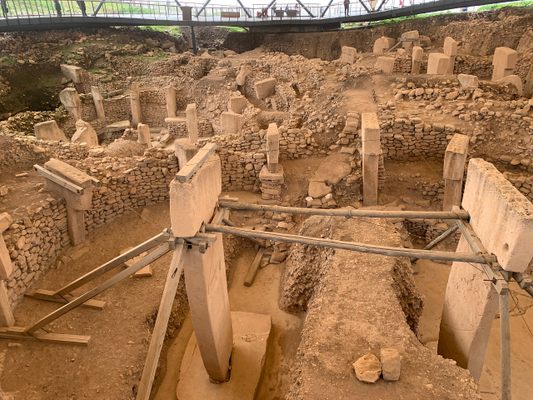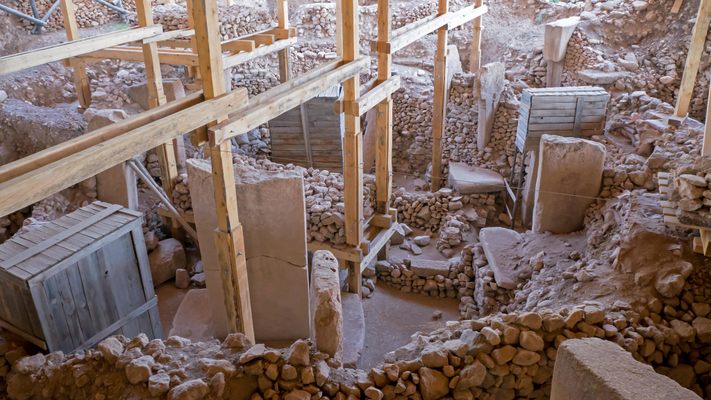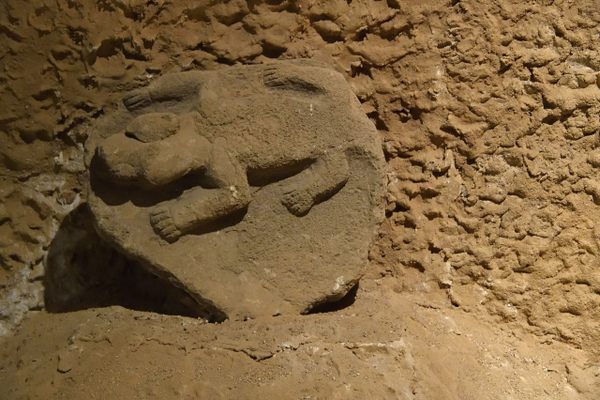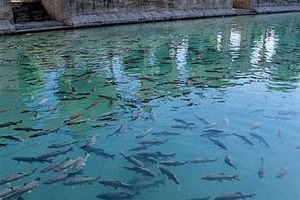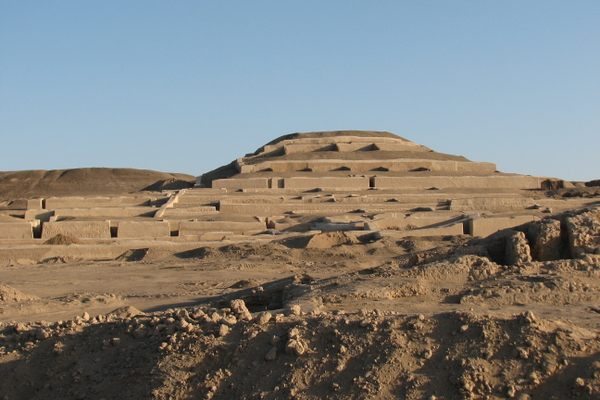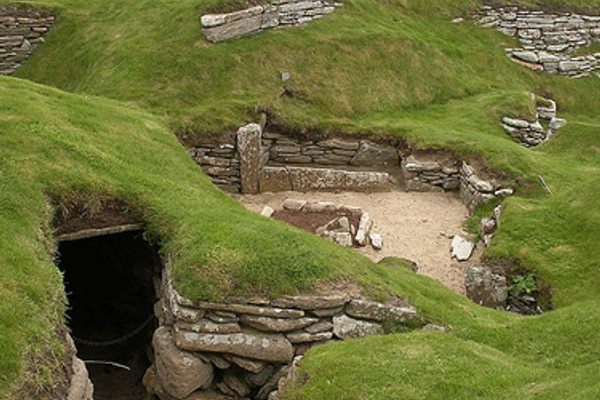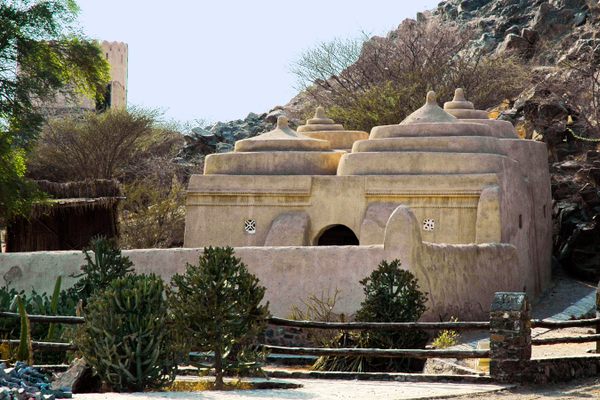About
Summarizing the importance of the the archaeological site at Gobekli Tepe (Turkish for "Hill with a Belly") is a formidable task. In 1994, German archaeologist Klaus Schmidt and his team unearthed a handful of findings that continue to revolutionize the way archeologists think about Stone Age man.
The site dates back 11,500 years, to the tail end of the Stone Age. The predominant understanding was that during this time, hunter-gatherers roamed the Earth, never settling, living as each day came. The huge Gobekli Tepe complex, however, brings this view into question. It consists of large, T-shaped pillars with animal carvings, huge stone rings, and a vast amount of rectangular rooms, many believed to have religious importance. One theory is that this site was not used for domestic purposes, but for rituals and sacrifices and the site at Gobekli Tepe is believed by some to be the oldest religious complex known to modern man. For this reason, the site has often invited breathless comparisons to the Garden of Eden, or the "origin of religion," which has long been associated with the Fertile Crescent and the ancient Sumerians, who invented written language.
Equally curious is the fact that before this discovery, there was no evidence of hunter-gatherers ever erecting large monuments and buildings, making this perhaps the world's oldest known architecture.
Nearby the site is Mount Karaca Dag, a mountain that geneticists believe to be the birth place of many of today's cultivated grains. It's theorized that Gobleki Tepe could be showing us a transition period, depicting nomadic cultures' first attempt to farm (which would later bring about permanent settlement). The one acre excavation site has raised more questions than it has answered, and astoundingly enough, the site is believed to extend some 22 additional acres.
Around 8,000 B.C., the site was filled with soil and mysteriously abandoned.
Related Tags
Published
November 23, 2010
Sources
- http://www.dailymail.co.uk/sciencetech/article-1157784/Do-mysterious-stones-mark-site-Garden-Eden.html
- http://www.smithsonianmag.com/history-archaeology/gobekli-tepe.html
- https://www.google.com/maps/place/Da%C4%9Fete%C4%9Fi+Mahallesi,+G%C3%B6bekli+Tepe,+63290+Haliliye%2F%C5%9Eanl%C4%B1urfa,+Turkey/@37.2162915,38.8500378,2402m/data=!3m1!1e3!4m5!3m4!1s0x15346502fe912231:0x24d422700430381a!8m2!3d37.2171641!4d38.854393


